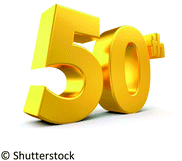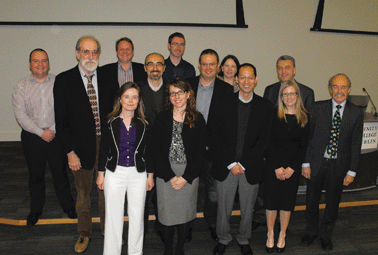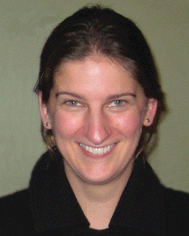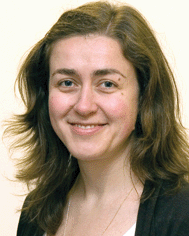Happy 50th Birthday ChemComm!
Abstract
Happy New Year to all our authors, readers and reviewers. This year sees some exciting developments for the journal as 2014 marks ChemComm's 50th anniversary. As well as celebrating this milestone with special activities and events, we are also delighted to reveal our new refreshed branding and article layout.
50 years of ChemComm
This year the journal publishes its 50th volume as ‘Chemical Communications’. Although, as we are sure many of you are aware, the journal's story goes back much further, with the Royal Society of Chemistry and its predecessors publishing its members' research as far back as 1841. To celebrate this, last year we began publishing a series of Viewpoints, which highlight some of the seminal research published in ChemComm (and its earlier versions) over the last 100 years. We have published over 30 of these so far which you can view on our website.
To celebrate this special year, we are planning a number of events including another UK-Brazil ChemComm Symposium, which is in follow-up to the successful 2012 symposia held in São Paulo and Rio de Janeiro. The three day symposium will be on the topic of ‘Chemistry and Sustainable Energy’ and will take place across two UK cities, Belfast and Manchester, with a third potentially to be held in London.
We also plan to hold further ChemComm-RSC Prizes & Awards Symposia in association with RSC Divisions. Over the last two years we have held events at Imperial College London, University of Oxford and Trinity College Dublin. The symposium in Dublin hosted over 150 delegates for the one day event on supramolecular chemistry. We look forward to continuing these symposia within the chemical science community, both within the UK and overseas—so watch out for details on forthcoming events soon.
Speakers at the ChemComm–RSC Prizes & Awards Symposia held in Dublin, Ireland
A brand new look
To coincide with our landmark year, ChemComm has also had a facelift—we hope you like our fresh new look? We have ambitious goals and to reach them we want to build a greater awareness of ChemComm and the Royal Society of Chemistry. We feel our new logo reflects the dynamic creativity of chemistry, it's about collaboration and community, becoming stronger as it builds and overlaps. We'd love to hear your feedback, please share your thoughts with us at mailto:brand@rsc.org. As well as updating our logo and cover designs, we have also made some changes to the way our articles look to reflect the new brand, make an impact and most importantly make it easier for you to read and navigate.
Articles in ChemComm should report urgent, significant new research; which is why we ask our authors to use our article template with an aim to keep communications concise. It has become clear, with the increasing volume of literature, that authors are finding it difficult to include all the information they would like to within the three pages currently allowed for ChemComm communications. Therefore, where the editors consider it necessary, we now allow up to four pages for submissions to ChemComm. We still ask that our authors aim to keep their communications as succinct as possible, but hope that this new flexible approach will make things more straight forward. You can see full details in our Author Guidelines on our website. We are also delighted to announce that we now offer our authors unlimited colour, both online and in print, completely free of charge.
Speed and quality
We are pleased that half a century on, ChemComm still publishes articles of the highest quality and scientific interest, which is reflected in our rejection rate which remains constant at around 65%. This year also saw a further increase in impact factor to 6.378 (2012 Journal Citation Reports®). You can see the quality for yourself by reading ChemComm's most read Feature articles (Table 1) and communications (Table 2) from 2013. ChemComm is also pleased to be one of the fastest journals in the field; with the average time to first online publication as low as 40 days. These positive developments for the journal mean that ChemComm leads the way as the largest international publisher of high-quality communications within general chemistry.| Title | Authors | DOI |
|---|---|---|
| Improvement of dye-sensitized solar cells toward the broader light harvesting of the solar spectrum | Suresh Kannan Balasingam, Minoh Lee, Man Gu Kang and Yongseok Jun | 10.1039/c2cc37616d |
| Exploration of the medical periodic table: towards new targets | Nicolas P. E. Barry and Peter J. Sadler | 10.1039/c3cc41143e |
| The chemistry of pristine graphene | Laura Rodríguez-Pérez, M. Ángeles Herranz and Nazario Martín | 10.1039/c3cc38950b |
| Acid-degradable polymers for drug delivery: a decade of innovation | Sandra Binauld and Martina H. Stenzel | 10.1039/c2cc36589h |
| Orthogonality in organic, polymer, and supramolecular chemistry: from Merrifield to click chemistry | Chun-Ho Wong and Steven C. Zimmerman | 10.1039/c2cc37316e |
| Title | Authors | DOI |
|---|---|---|
| A seeded synthetic strategy for uniform polymer and carbon nanospheres with tunable sizes for high performance electrochemical energy storage | Jiasheng Qian, Mingxian Liu, Lihua Gan, Pranav K. Tripathi, Dazhang Zhu, Zijie Xu, Zhixian Hao, Longwu Chen and Dominic S. Wright | 10.1039/c3cc41113c |
| Efficient solar photoelectrosynthesis of methanol from carbon dioxide using hybrid CuO–Cu2O semiconductor nanorod arrays | Ghazaleh Ghadimkhani, Norma R. de Tacconi, Wilaiwan Chanmanee, Csaba Janaky and Krishnan Rajeshwar | 10.1039/c2cc38068d |
| Switchable viscosity triggered by CO2 using smart worm-like micelles | Xin Su, Michael F. Cunningham and Philip G. Jessop | 10.1039/c3cc37816k |
| Metal-free, highly efficient organocatalytic amination of benzylic C–H bonds | Qicai Xue, Jin Xie, Huamin Li, Yixiang Chenga and Chengjian Zhu | 10.1039/c3cc41558a |
| Synthesis of MoS2 nanosheet–graphene nanosheet hybrid materials for stable lithium storage | Xiaosi Zhou, Li-Jun Wan and Yu-Guo Guo | 10.1039/c3cc38780a |
International Editorial Board
Led by Editorial Board Chair Professor Richard R. Schrock (MIT, USA), ChemComm has thirteen Associate Editors who are active scientists and experts in their respective fields; their expertise range from organic chemistry to catalysis and from supramolecular chemistry to chemical biology. Authors have the choice to either submit directly to an Associate Editor or to our professional editors in the Cambridge Editorial Office. This flexibility allows authors to choose their preferred choice of editor, subject to availability, upon submission. We will also be announcing two new appointments in 2014. You can find information about all of the ChemComm Associate Editors on our website www.rsc.org/chemcomm. They welcome your submissions today!The ChemComm Community
ChemComm is dedicated to supporting up-and-coming researchers and aims to foster interactions within the chemical sciences community. One way in which we do this is through our Emerging Investigators issues, and now in its fourth year, we have been delighted with their success. Published annually, the issues showcase the very best work from scientists in the early stages of their independent career. The 2013 ChemCommEmerging Investigators issue contained over 90 communications and Feature articles. The 2014 issue is set to be a bumper collection again, look out for this online and in print in the coming months.As part of our 50th volume celebrations this year we will award three ChemComm Emerging Investigator Lectureships. The lectureship, which is awarded annually, recognises an emerging scientist in the early stages of their independent academic career. We receive a large volume of high calibre nominations and the lectureship has become very competitive. Last year saw the Editorial Board award two lectureships; the recipients were Professor Louise A. Berben (University of California Davis) and Dr Marina Kuimova (Imperial College London). The Editorial Board commended Louise's contributions to the field of synthetic and physical inorganic chemistry, and Marina was awarded the lectureship for her excellent work within biophysical chemistry. Louise and Marina will give their lecture tours in 2014, which will include Louise speaking at Challenges in Inorganic and Materials Chemistry (ISACS 13) in Dublin in July.
Nominations for the 2014 ChemComm Emerging Investigator Lectureship closes in December and the winner will be announced very soon.
2013 ChemComm Emerging Investigator Lectureships: Louise A. Berben and Marina Kuimova
ChemComm has a long history as a society journal and is proud to support the scientific community. We want ChemComm to be a community journal—in this vein, we are currently conducting an external review of the journal, to work with the community to help direct the future strategy of ChemComm, so it can be the journal you would like it to be. We will soon begin to solicit feedback through focus groups and questionnaires and we welcome your ideas for the journal. In the New Year we will also launch a ChemComm Community online—to allow emerging researchers to share ideas, ask questions and interact with our editors.
The journal continues to sponsor a variety of international meetings, as well as awarding prizes to some of the best up-and-coming new scientists across the world. In 2014, we will continue to attend international conferences, to ensure we are aware of the latest ‘hot’ topics and cutting-edge research. This is also a great opportunity to meet our authors, readers and referees, so if we are at a conference you're attending, please do come and say hello—we'd love to get your feedback on ChemComm.
Web themes
Web themed issues in ChemComm allow us to highlight current topical subjects and to attract research from exciting new areas of the chemical sciences. 2013 saw ChemComm publish a broad range of web themes which can be seen in Table 3. You can view all our themed collections on the ChemComm website. We have a number of collections underway already for 2014 including metal-mediated transformations of small molecules, scanning probe studies of molecular systems and systems chemistry. We welcome suggestions for new web themed issues, so please get in touch with your ideas.| Topics | Guest Editors |
|---|---|
| Microfluidics | Andy deMello, Florian Hollfelder and Klavs Jensen |
| Mechanochemistry | Stuart James and Tomislav Friščić |
| Medicinal inorganic chemistry | Mi Hee Lim, Seth Cohen and Amy Barrios |
| Electrocatalytic hydrogen evolution | Vincent Artero, Jim Muckerman and Fraser Armstrong |
| Molecular spintronics | Daniel Gamelin, Martin Kirk and David Schultz |
| Biological oxidation reactions | Wes Browne and Ebbe Nordlander |
| CO2 separation, capture and reuse | Len Barbour and Mohamed Eddaoudi |
| Structure and chemistry of materials from in situ electron microscopy | Franklin (Feng) Tao, Nigel Browning and Eric Stach |
The Editorial Office wants to make sure the work published in ChemComm has the highest visibility possible for our authors. We promote the latest high-quality research and news from the ChemComm blog and Twitter feed @ChemCommun—we encourage you to sign-up and follow our tweets today at http://twitter.com/ChemCommun.
The next 50 years…
ChemComm has seen a large transformation over the last five decades and with developments in online innovation, open access publishing and changes within the research landscape—who knows where, or what, ChemComm will be when we reach our centenary… However, as a ‘community journal’ we hope you, our authors, Board members, readers and referees, will work with us to shape ChemComm into what you want and need us to be. We thank you for your invaluable and on-going support and look forward to the next 50 years!We always welcome your feedback, comments and suggestions; please do contact us at ChemComm-RSC@rsc.org.
With our best wishes for the New Year,
Richard R. Schrock, Editorial Board Chair
Robert Eagling, Managing Editor
Jane Hordern, Deputy Editor
Philippa Ross, Senior Publishing Editor
| This journal is © The Royal Society of Chemistry 2014 |





